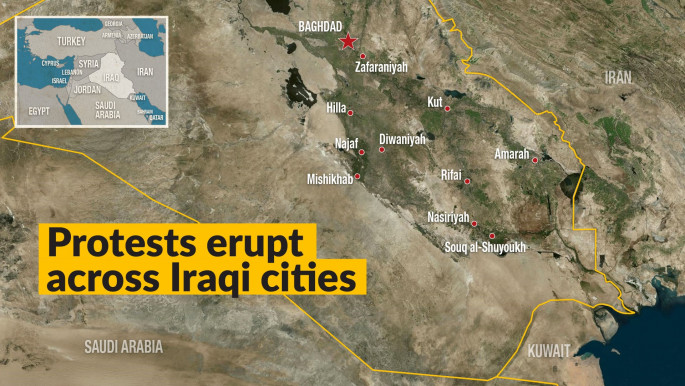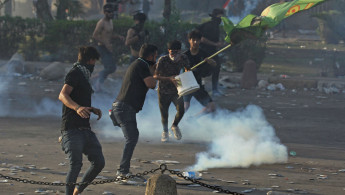Iraq death toll rises to 42 home as PM urges protesters to go home
Since Tuesday, security forces have fired live rounds and tear gas to disperse protesters who are holding demonstrations against corruption, unemployment and poor public services.
Protesters gathered in Baghdad for a fourth day on Friday and were met by security forces who opened fire, an AFP correspondent reported.
The security forces fired directly at the protesters, not in the air, the correspondent said.
'Bitter medicine'
In a bid to quell the unrest, Iraq's premier on Friday sent a message to the anti-government protesters, saying their “legitimate demands” have been heard.
Speaking in a televised address, Prime Minister Adel Abdel Mahdi urged them to go home, comparing security measures imposed in the wake of this week’s violence, including a curfew, to “bitter medicine” that needs to be swallowed.
Authorities have also cut internet access in much of Iraq since late on Wednesday, in a desperate move to curb the rallies.
The rallies erupted spontaneously, mostly spurred by youths wanting jobs, improved services such as electricity and water, and an end to endemic corruption in the oil-rich country
“We will not make empty promises ... or promise what we cannot achieve,” Abdel Mahdi said in his televised speech, broadcast at 2:30 a.m.
|
||
He said there is "no magic solution" to Iraq’s problems but pledged to work on laws granting poor families a basic income, provide alternative housing to violators and fight corruption.
“The security measures we are taking, including temporary curfew, are difficult choices. But like bitter medicine, they are inevitable,” he said. “We have to return life to normal in all provinces and respect the law.”
It was not immediately clear what the protesters’ response to Abdel Mahdi’s statements will be.
The unrest is the most serious challenge for his year-old government, which also has been caught in the middle of increasing US-Iran tensions in the region. Iraq is allied with both countries and hosts thousands of US troops, as well as powerful paramilitary forces allied with Iran.
The mostly leaderless protests have been concentrated in Baghdad and in predominantly Shia areas of southern Iraq, bringing out jobless youths and university graduates who are suffering under an economy reeling from graft and mismanagement.
Follow us on Twitter: @the_newarab





 Follow the Middle East's top stories in English at The New Arab on Google News
Follow the Middle East's top stories in English at The New Arab on Google News


